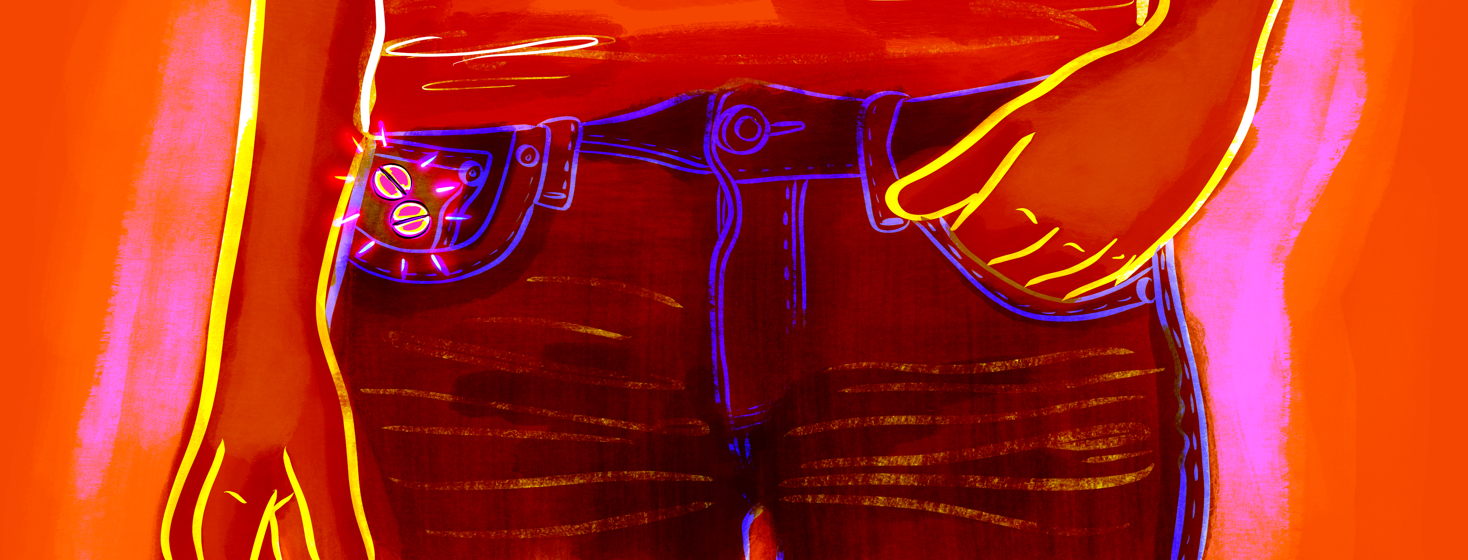How I Manage Some of My Worst Symptoms
Endometriosis has troubled me for more than two decades. And surgeries haven't helped much. While my first laparoscopy made sex possible, most of my symptoms persisted. And a second ablation — 6 years later — gave me an infection that made things worse for a while. And a decade of hormonal birth control was also a bust.
I know excision is the gold standard. But it doesn't look like I'll get it anytime soon. And I'm not sure it would help with all of my issues. So I plan to keep managing my endo symptoms one at a time. Here’s how I treat some of the worst ones.
Migraines
I avoid triggers like alcohol and tea. But the key to keeping my migraines under control is to treat them right when I notice symptoms. I keep prescription medicine called triptans everywhere: at my desk, in my wallet, in my travel medicine kit, in those tiny jean pockets. I literally do not go anywhere without one or two of them.
I’ve also learned to notice my headache warning signs. Like clockwork, they come right before or after my period.
A day or two before I get a migraine, I might have:
- Sensitivity to smells
- Dizzy spells (vertigo aura)
- Nausea
- A dull ache on one side of my head
- One runny nostril
Triptans are a medication used specifically to treat migraines, which are not the same as other kinds of headaches. And triptans work in a completely different way than something like ibuprofen. They stimulate serotonin, reduce inflammation, and constrict blood vessels in the brain.1
If you get severe headaches, ask your doctor about treatment options. There are many ways to treat chronic and short-term migraines. And menstrual migraines are well-documented. That means your doctor is less likely to dismiss you, hopefully.
Period pain
This is the toughest one. No over-the-counter option gets rid of all my pain. But ibuprofen can take the edge off. If I’m near ovulation or my period, my pain can wake me up in the middle of the night. Taking an ibuprofen usually helps dull it enough to go back to sleep. And per my doctor’s advice, I take it a couple days before my period starts.
When I'm vigilant, I can stay two steps ahead of my cramps. But I don’t always take my preventative ibuprofen. That's because 1.) I forget and 2.) I don’t like taking drugs all the time.
I do feel better when I take CBD oil during the days before my period. But this option has its own drawbacks: it's expensive and I don't always have it.
When things get really bad — like throw-up, blurry-vision bad — I do have a prescription painkiller. But I don’t get very many, and they’re reserved for emergencies only.
Back pain
I have a decent amount of lower back pain and some sciatica. Ibuprofen doesn’t really help with this. Neither do muscle relaxers (which also make me constipated). I’ve asked my doctor to look for endo on my tailbone or sciatic nerve, but she’s not going to.
Until I find someone a new doctor, I've found the best way to treat my back pain is to prevent it. Which I know is easier said than done. But I’ve benefitted from a chiropractor and a physical therapist. The latter gave me some pretty helpful exercises to release nerve compression. And they helped me adjust my sitting posture. This doesn’t cure the source of my back pain. But it helps keep it from getting worse.
Gas
I take a digestive enzyme (generic Bean-O) before I eat certain high-FODMAP foods. That usually does a good job of keeping gas in check. But it's not a panacea. And sometimes that extra air gets trapped.
This may not seem related to endometriosis. But stay with me.
Doctors told me that my intestines may be more sensitive than someone without endometriosis. That’s called visceral hypersensitivy. So not only do I produce more gas from certain foods, I may feel the pain more intensely.2
The first time I had a gas bubble, I thought I needed to go to the emergency room. But then I discovered the wonders of Gas-X, or simethicone. It works by helping bind the gas together, which makes it easier for you to expel.
And now I keep it in my bedside table — next to the migraine meds, ibuprofen, and CBD cream.

Join the conversation